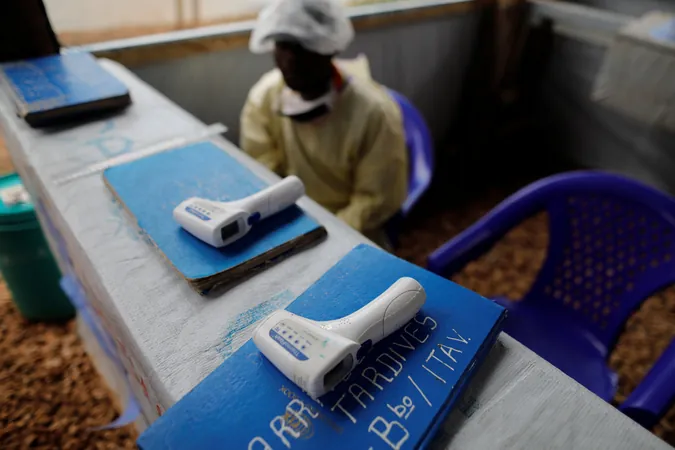
Urgent Call for Help: Ebola Outbreak Threatens Congo's Health Infrastructure
2025-09-22
Author: Wei Ling
In a critical announcement from Geneva, the International Federation of Red Cross and Red Crescent Societies (IFRC) has warned that health facilities in the heart of an Ebola outbreak in the Democratic Republic of Congo (DRC) are nearing collapse, with essential supplies running dangerously low.
With the situation escalating, the IFRC is urgently requesting 20 million Swiss francs (approximately $25 million) to contain the outbreak in Bulape, marked as the country’s first in three years, declared in early September.
A Looming Health Crisis
The dense tropical forests of Congo serve as a breeding ground for the Ebola virus, which produces severe symptoms such as fever, body aches, and diarrhea. Disturbingly, the virus can remain dormant in survivors' bodies and resurface years later, posing long-term risks.
Ariel Kestens, IFRC Head of Delegation in Kinshasa, expressed grave concerns: "Health facilities are overwhelmed, essential supplies are not available, and the area is without power." This alarming situation raises flags about the potential for the virus to spread rapidly within vulnerable communities.
The Situation on the Ground
As of last week, the World Health Organization (WHO) reported 48 confirmed and probable Ebola cases, with 31 fatalities. The primary isolation center in Bulape has little room for additional patients, operating at a staggering 119% capacity.
"Without immediate resources, the virus could quickly spread to already fragile communities," the IFRC cautioned. Gregoire Mateso, President of the DRC Red Cross, emphasized the urgent need for support in remote and underserved areas, stating, "Protecting health workers means protecting communities. It's about preventing another regional health crisis."
Taking Action Against Ebola
In response to the outbreak, the WHO has commenced vaccinations for frontline health workers and those in direct contact with infected individuals in Kasai Province. As the situation develops, the need for international collaboration and support has never been more crucial to prevent a larger health catastrophe.



 Brasil (PT)
Brasil (PT)
 Canada (EN)
Canada (EN)
 Chile (ES)
Chile (ES)
 Česko (CS)
Česko (CS)
 대한민국 (KO)
대한민국 (KO)
 España (ES)
España (ES)
 France (FR)
France (FR)
 Hong Kong (EN)
Hong Kong (EN)
 Italia (IT)
Italia (IT)
 日本 (JA)
日本 (JA)
 Magyarország (HU)
Magyarország (HU)
 Norge (NO)
Norge (NO)
 Polska (PL)
Polska (PL)
 Schweiz (DE)
Schweiz (DE)
 Singapore (EN)
Singapore (EN)
 Sverige (SV)
Sverige (SV)
 Suomi (FI)
Suomi (FI)
 Türkiye (TR)
Türkiye (TR)
 الإمارات العربية المتحدة (AR)
الإمارات العربية المتحدة (AR)